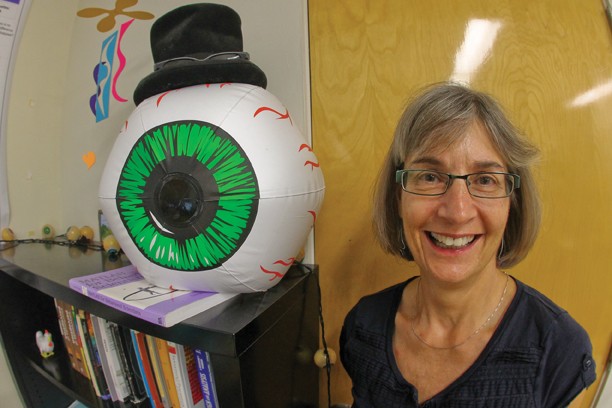Although the College of Science sees a disparity in gender amongst its leaders, many of them say a bias against women doesn’t exist in their college.
A study conducted at Yale University found that professors at six major research universities were less likely to offer qualified women research positions, but College of Science Dean Joaquin Ruiz said he feels the UA does not experience such bias.
“We have had various studies in the College of Science trying to determine if there is overt or covert discrimination against women,” Ruiz said. “There is no clear indication that there is, in general. I suspect that there may be pockets here and there where that problem may exist.”
Ruiz said that the enrollment in the College of Science is approximately even between men and women, and has been for the past several years.
According to Elizabeth Glisky, head of the College of Science’s psychology department, only four of the 17 department heads are female, including herself. In addition, both the dean and associate dean of the College of Science are male.
However, Glisky said that the number of female students in the College of Science has increased in the past few years, but that this may be due to Psychology becoming part of the college in 2010. Currently 70 percent of psychology students, or 1500 students, are women, according to Glisky.
“I am not aware of any outright bias against women in science,” Glisky said. “In my department, of the last four hires we made, three were women.”
Bias against women in scientific careers may be the product of a collection of small biases toward men over the course of time, said Mary Peterson, a professor with the department of psychology and director of the cognitive science program.
“There are lots of biases operating implicitly that wind up holding women back because they tend to be rated lower than men even if qualifications are the same … and they tend to be paid salaries that are lower than men’s,” Peterson said. “So what happens to women’s careers over time is that if they do come out of graduate school equal to men, if you track their careers over the years, the men’s career trajectory goes up with a much steeper slope than a woman’s. It could simply be an accumulation of small biases towards the men over the women.”
One of the unconscious psychological biases Peterson cited as a barrier for women is what she called availability heuristic.
For example, when selecting speakers to present research at a scientific conference, people will choose the names which come most readily to mind. However, when there is a minority, such as women, it is less likely that the names of people in that minority group, such as a woman will come to mind.
“One can get speakers who are all men, as opposed to women,” Peterson said. “This is something that affects somebody’s career trajectory, because if they’re not giving talks at conferences, they’re not as visible.”
Peterson added that the effects of this phenomenon are not limited to women in scientific careers, but rather an effect that exists throughout society.
“One thing that we have learned over the years from many studies that we’ve done is that people everywhere are affected by unconscious bias,” said Peterson. “We live in a society that has a bias inherent in it, and even if intellectually we may not want to take part in that sort of bias, we do so because we’re driven by things we’ve learned and the environment we grew up in. Rather than say whether it happens at the UA, I’d like to say is that I believe that it happens everywhere.”









